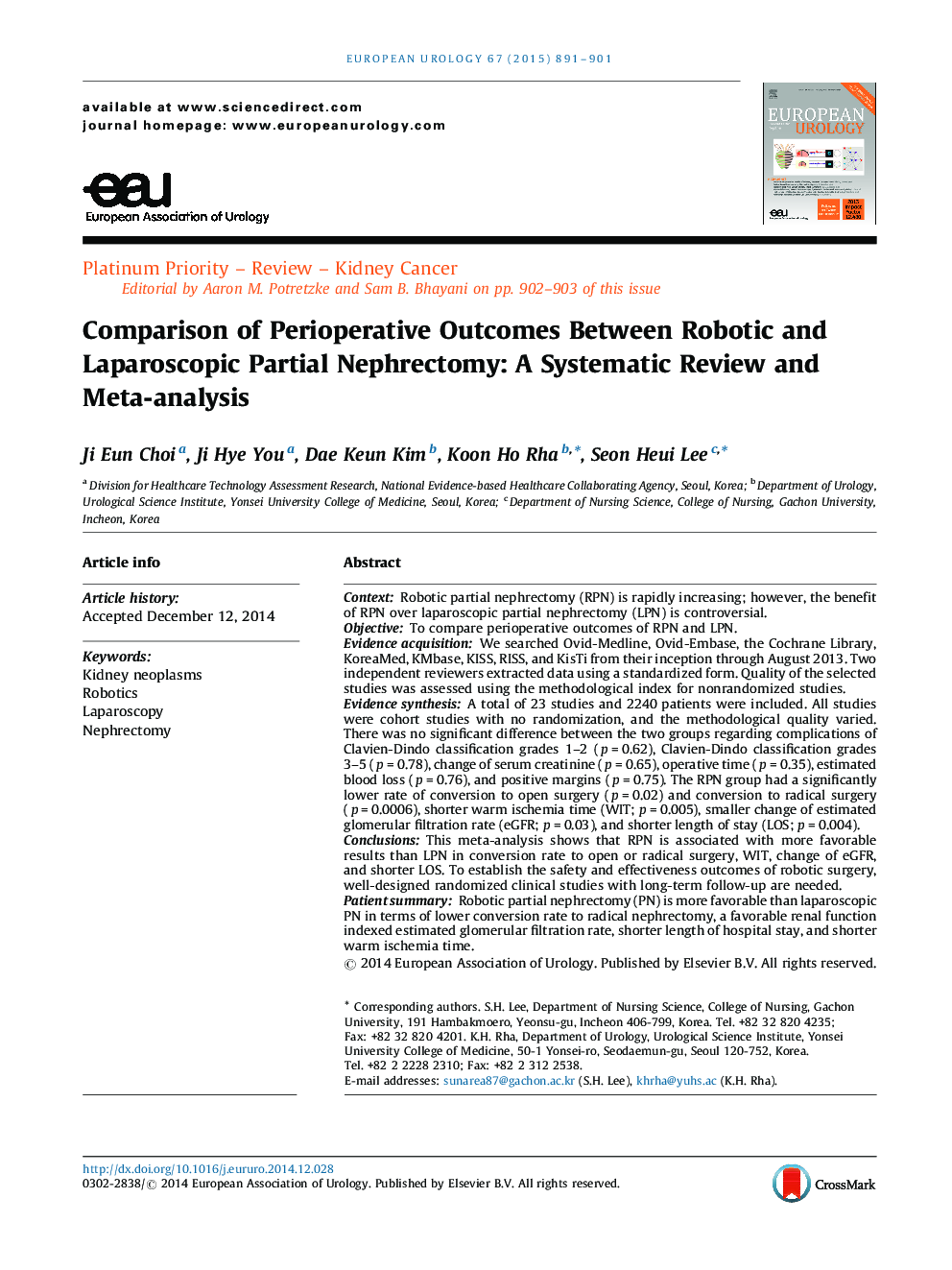| Article ID | Journal | Published Year | Pages | File Type |
|---|---|---|---|---|
| 3923609 | European Urology | 2015 | 11 Pages |
ContextRobotic partial nephrectomy (RPN) is rapidly increasing; however, the benefit of RPN over laparoscopic partial nephrectomy (LPN) is controversial.ObjectiveTo compare perioperative outcomes of RPN and LPN.Evidence acquisitionWe searched Ovid-Medline, Ovid-Embase, the Cochrane Library, KoreaMed, KMbase, KISS, RISS, and KisTi from their inception through August 2013. Two independent reviewers extracted data using a standardized form. Quality of the selected studies was assessed using the methodological index for nonrandomized studies.Evidence synthesisA total of 23 studies and 2240 patients were included. All studies were cohort studies with no randomization, and the methodological quality varied. There was no significant difference between the two groups regarding complications of Clavien-Dindo classification grades 1–2 (p = 0.62), Clavien-Dindo classification grades 3–5 (p = 0.78), change of serum creatinine (p = 0.65), operative time (p = 0.35), estimated blood loss (p = 0.76), and positive margins (p = 0.75). The RPN group had a significantly lower rate of conversion to open surgery (p = 0.02) and conversion to radical surgery (p = 0.0006), shorter warm ischemia time (WIT; p = 0.005), smaller change of estimated glomerular filtration rate (eGFR; p = 0.03), and shorter length of stay (LOS; p = 0.004).ConclusionsThis meta-analysis shows that RPN is associated with more favorable results than LPN in conversion rate to open or radical surgery, WIT, change of eGFR, and shorter LOS. To establish the safety and effectiveness outcomes of robotic surgery, well-designed randomized clinical studies with long-term follow-up are needed.Patient summaryRobotic partial nephrectomy (PN) is more favorable than laparoscopic PN in terms of lower conversion rate to radical nephrectomy, a favorable renal function indexed estimated glomerular filtration rate, shorter length of hospital stay, and shorter warm ischemia time.
